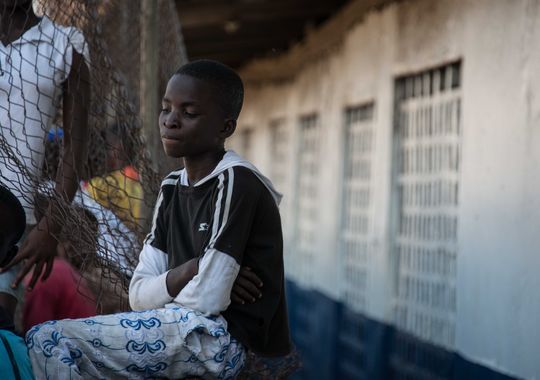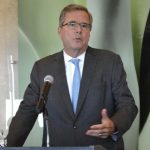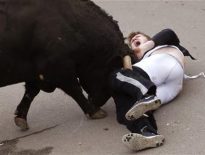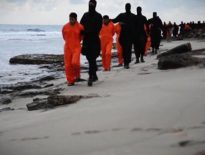MONROVIA, Liberia — Schools are set to reopen Monday across Liberia after the deadly Ebola outbreak forced them shut last year, and the principal of West Point township’s only public elementary and junior high school said all the furniture needs to be burned.

As recently as last month, the N.V. Massaquoi school was used to screen sick people for Ebola, which has killed more than 3,800 people in Liberia and ravaged the neighboring West African countries of Sierra Leone and Guinea.
The school has been disinfected — it smells heavily of chlorine — but Principal M. Gleh Mason II said that’s not enough. Patients sat on the wooden benches and chairs, and he wants all the furniture replaced.
That is the most pressing need, and one virtually impossible to complete by Monday, when the Ministry of Education has said the country’s 5,100 schools will open. Mason also wants the roof fixed and the building repainted.
At the height of the epidemic last year, residents in West Point — one of the Liberian capital’s poorest and most crowded neighborhoods — watched every day as the sick were brought into the school, and the dead were carried out.
People died within the building. So for that reason, every thought about the school became a very different one. It changed perception, Mason said while sitting in the schoolyard over the weekend.
He said he hopes a renovation will make residents think of the long, narrow concrete building, with its pocked corrugated metal roof that lets sunlight through, as a school again.
Liberia has recorded only a handful of new confirmed infections each week for the past few weeks, according to the World Health Organization. Restarting schools, which have been closed since the summer break, is one of the most potent signs that the epidemic is waning.
Yet many fear the government is too eager to declare victory against an unconquered virus. Schools were supposed to reopen Feb. 2, but the Ministry of Education pushed back the date to give them more time to put safety measures in place.
Many schools may not open Monday. More than half of the country’s schools don’t have easy access to running water, according to Steve Morgan, the Liberia director for Save the Children, which is working with 500 schools to help them reopen.
Without water, even rudimentary hand-washing facilities are difficult to install, and they’re a critical ministry requirement to prevent spreading the virus.
This weekend, officials were rushing thermometers, buckets and chlorine to schools in hard-to-reach counties, according to Shannor Goe, the Ministry of Education’s deputy director of communication.
Even schools ready to open face major challenges. More than 4,500 children in Liberia lost a primary caregiver to Ebola, according to the United Nations Children’s Fund, and thousands of those students will be sitting in classrooms. Students who haven’t cracked a book in seven months need to be brought up to speed. The economy is devastated, so many parents fear they won’t be able to afford uniforms or books for their children, though many organizations donate these items.
Some parents remain skeptical. Massa Madave, who has nine children at Kpallah Public School on the outskirts of Monrovia, said she wouldn’t send her youngest two — ages 4 and 8 — at least on the first day. Small children touch each other too much when they play, she explained.
Ebola is spread through direct contact with bodily fluids, and no touching has been the rule in Liberia for months.
These concerns come on top of the enormous challenges that face Liberia’s schools, including some of the world’s lowest primary school enrollment and highest dropout rates. Many teachers weren’t trained properly, classrooms were overcrowded, and students left school unprepared, Morgan of Save the Children said. In 2013, none of the 25,000 students who took the entrance exam for the University of Liberia passed.
Still, kids seem desperate to get back to the classroom. Jacob Quasah, 15, who watched his friends play soccer next door to Massaquoi, shouted to a group visiting the school to ask if they were bringing supplies so he could go back to class.
Sheldon Yett with UNICEF, which provided hygiene supplies for Liberia’s schools, said schools can offer important support to students after all they’ve been through with the Ebola outbreak. But he acknowledged that even one case of a child getting sick with the virus would set the country back.
Those risks are too high for Arochelaus Nagbe, a community leader in West Point and a father of two Massaquoi students. He laughed off the suggestion that a hand-washing station is enough to assuage his concerns.
Washing the hands is good if then you enter into a clean place, he said in the schoolyard. At Massaquoi, washing hands would be meaningless.





